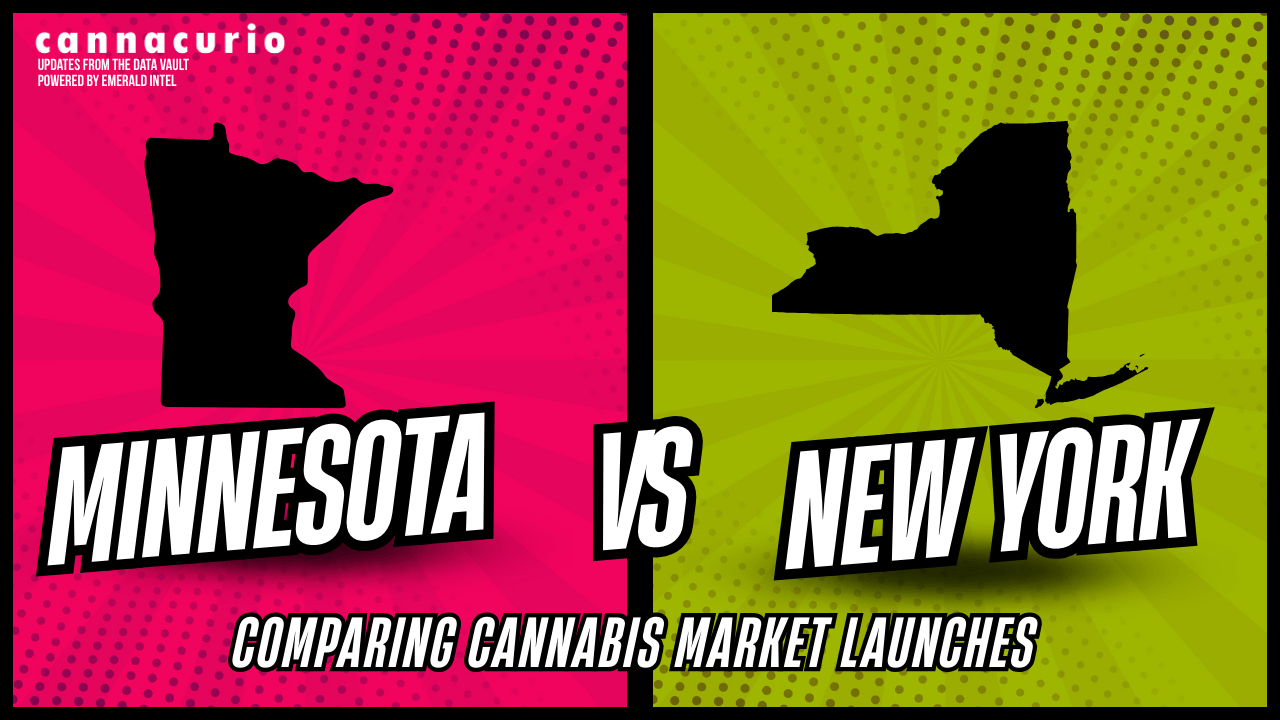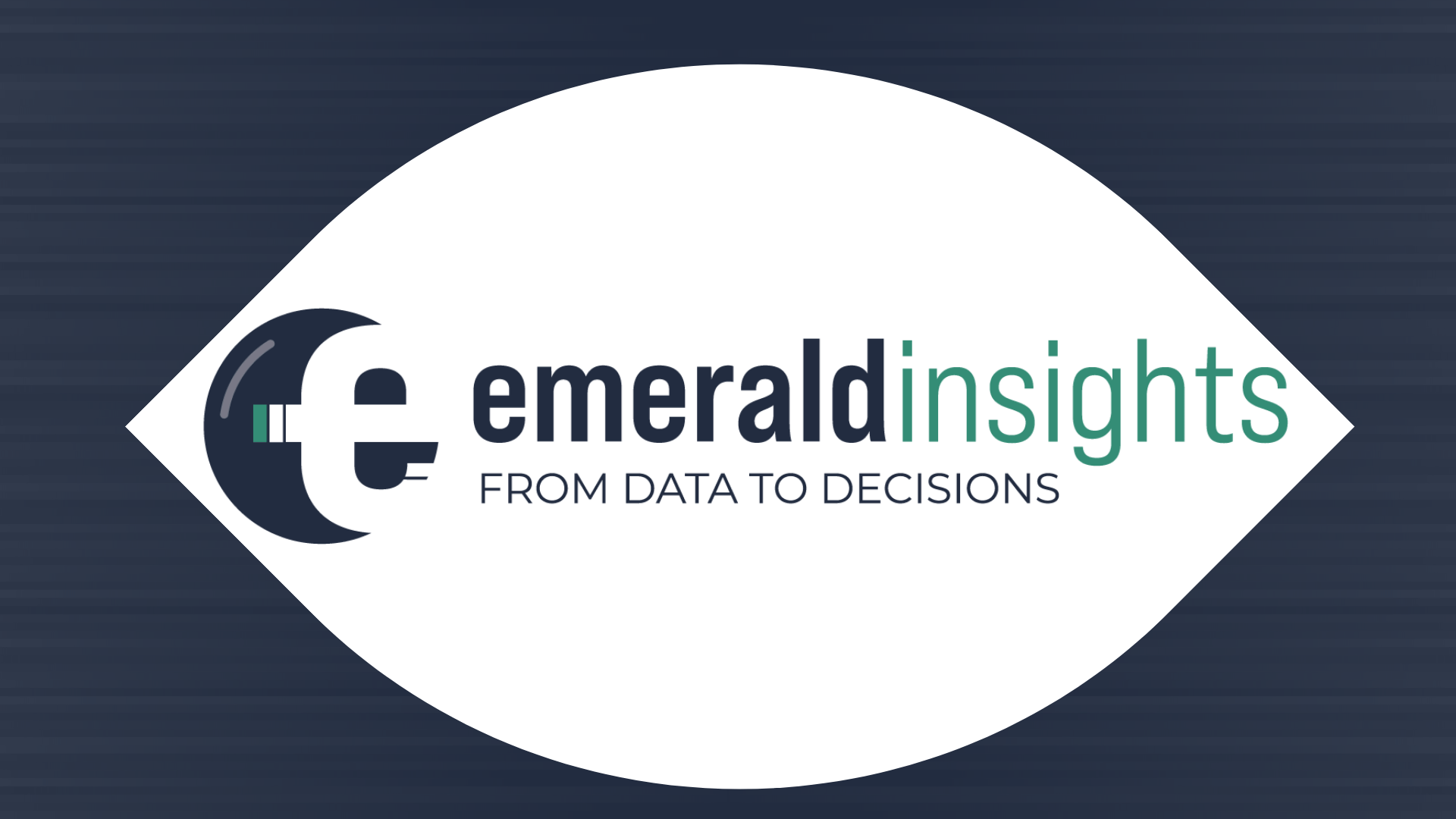
The Value of Quality Data in the Cannabis Industry
Research from IBM Marketing Cloud found that 90% of the data on the internet has been created since 2016, and the amount of data created every day continues to increase. According to a separate study by IDC, the amount of data created will jump from approximately 50 zettabytes in 2020 to 175 zettabytes in 2025.
To put that into perspective, one zettabyte equals one trillion gigabytes. Looking at it another way, 175 zettabytes equates to a stack of DVDs circling the earth 222 times, and downloading that data at an average of 50 MB per second would take you nearly one billion years (0.9 billion years to be more specific).
That’s a lot of data! Today, we live in a world that relies on data, and this includes the cannabis industry. However, not all data is equal. A lot of the data that businesses use to make decisions, generate leads, and close sales every day is bad, and bad data hurts your bottom line. Here’s a sentence I want you to commit to memory:
✔ Quality data supports quality decisions and delivers quality outcomes.
Write that sentence down, paste it on your wall, but don’t forget it, because if you’re using bad data to make business decisions, the resulting outcomes of those decisions will be disappointing (or disastrous).
In other words:
✘ Bad data supports bad decisions and delivers bad outcomes.
It’s that simple.
What is Quality Data?
Quality data ticks five critical boxes:
- Accurate: It is correct.
- Indispensable: It is mission critical to the needs and goals of the business.
- Comprehensive: It provides a full picture rather than just bits and pieces.
- Timely: It is not outdated.
- Understandable: It can be extracted in a usable format for interpretation and use.
Think of data as a valuable business asset and devote sufficient budget and resources to collecting it and using it effectively.
It’s essential that everyone on your team – from the top executives to every employee – understands the value of quality data and prioritizes it.
However, that doesn’t mean your sales team should spend their days tracking down email addresses and phone numbers for prospects.
Ideally, you should build a content collection and updating system that ensures your leads are always as current and high quality as possible. According to Harvard Business Review, 40% of business sales leads contain bad data, and workers waste 50% of their time searching for data, finding and correcting errors, and looking for sources to confirm data they don’t trust.
40% of business sales leads contain bad data.
The reality is that data is a critical part of your business’ insights value chain, which McKinsey breaks into five parts:
- New data sources
- Orchestration of data
- Unstructured data
- Privacy and legal considerations
- Data security
Based on the insights value chain inherent in quality data, collecting, structuring, and using data is just part of the process. Businesses also need to know that the data is compliant with privacy, legal, and security requirements.
With the passing of the California Consumer Privacy Act (CCPA) and privacy legislation being considered in states across the country, you need to verify that consumers’ personal information is secure and private or you won’t have quality data you need to make critical business decisions.
The goal is to avoid wasting time and money by ensuring you always have access to quality data. The good news is Cannabiz Media already built that system for you. But more about that later.
The Cost of Bad Data
If the data your business uses is inaccurate, irrelevant, incomplete, outdated, or impossible to understand, then the decisions you make based on that information won’t deliver optimal results – or worse, your decisions could be completely wrong and lead to significant losses.
Research by IBM found that poor decisions made based on bad data cost the U.S. economy approximately $3.1 trillion dollars per year. In addition, Experian found in its research that the bottom line of nearly 90% of all U.S. companies is directly and negatively impacted by bad data.
Recent research from Gartner found that organizations believe poor data quality is responsible for an average of $15 million per year in losses, and a report from Ovum Research found that poor quality data is costing businesses at least 30% of revenues.
Poor quality data is costing businesses at least 30% of revenues.
Even smaller businesses feel the negative effects of bad data. Research from Blue Sheep revealed that smaller companies lose 6% of their revenue each year because of bad data. In simplest terms, low quality information can lead to missed opportunities and big mistakes that affect sales, revenue, brand reputation, and more.
The Causes of Bad Data
Most often, bad data is caused by one or more of the following factors:
- Missing: Information is not included in the database at all.
- Inaccurate: The information is wrong.
- Erroneous: The information was entered into the wrong field.
- Non-conforming: The information hasn’t been normalized based on the processes put in place to standardize it.
- Duplicate: The information appears in multiple records.
- Mistyped: The information was entered into the database incorrectly and includes misspellings and typographical mistakes.
When you’re developing your own repository of data or you’re licensing data from another source in the cannabis industry, it’s essential that the provider has comprehensive procedures in place to improve the quality of the information to the extent possible.
Did you know the following statistics about bad data?
- 40% of email users change their email address at least once every two years and 15% change it one or more times per year
- 25-33% of email addresses become outdated every year
- 20% of all physical mailing addresses change every year
- 18% of all telephone numbers change every year
- 21% of all CEOs change every year
- 60% of people change job functions within their companies every year
What you need to understand is that not all data is created equal, and it’s imperative to the survival of your business that you’re basing decisions and focusing sales and marketing efforts on quality data.
1 in 3 email addresses change every year and 1 in 5 physical mailing addresses and phone numbers change every year.
Risks to Your Business if You Use Bad Information
The risks to your business if you use bad data are simply too big to ignore. From losing a sale to a public relations disaster, here are some common problems you could incur if you rely on low quality information to make business decisions:
- Errors in product deliverables
- Misaligned marketing and sales strategies and budgets
- Failure of marketing and sales efforts
- Increased churn rate
- Lost sales and revenue
- Lower customer satisfaction
- Reduced customer loyalty
- Negative publicity
- Distorted reporting metrics
- Decreased productivity
- Reduced consumer confidence
- Costly compliance mistakes
This list is not exhaustive, but it does give you an idea of how far-reaching the effects of relying on bad information can be to your business. Tread carefully and do your due diligence to make sure the source of the data you’re using is providing accurate, indispensable, comprehensive, timely, and understandable information.
The Value of Quality Data
When you have access to quality data, you and your team have confidence that the decisions you make are well-informed and backed by quantifiable evidence. As a result, everyone is more likely to commit to your business strategies, and they’re better positioned to seize opportunities and thwart threats when they present themselves.
The cannabis industry is growing quickly, which makes it one of the most difficult industries to collect reliable information for, but don’t let that discourage you. The trick is to find reliable sources by asking the right questions.
Use the information in this article to help you do your research and find the best cannabis industry data source. Here are a few questions to help you get started:
- Where does your data come from?
- How do you collect your data?
- How often is the data updated?
- What steps do you take to make sure the data is accurate?
- Do you have a system to verify the data with multiple sources?
- What processes do you have in place to standardize the data, remove duplicates, and fix mistakes?
- Can you describe some of the options for extracting the data so it’s useful and understandable for me and my team?
Finding Quality Cannabis Industry Data to Grow Your Business
As a business, you need high quality data. There are many data providers in the cannabis industry, but as in all industries, all of those providers don’t offer the same level of quality in the information they collect and deliver to users. Also, they don’t all follow the same steps to ensure their data is compliant with current privacy and security laws.
The Cannabiz Media License Database is different because the research team takes multiple steps to collect, verify, and cleanse the data users depend on to make critical business decisions and to grow their cannabis-related companies.
Cannabiz Media employs a staff of professional researchers, many of whom have advanced degrees, who work with regulators to obtain this information. The researchers then scour multiple sources to add to this information in order to make it more valuable and actionable.
Finally, the researchers call license holders to confirm what they found and add valuable market research data that can only be obtained via the telephone.
In addition, cannabis license holders are invited to sign up for complimentary regional accounts that allow them to claim their licenses and update their information. The subscription also gives them access to use many of the features of the Cannabiz Media License Database free of charge.
Ready to get access to the highest quality data on cannabis licenses and a powerful CRM and email marketing tool?
Schedule a demo to see the Cannabiz Media License Database in action and learn more about how the team ensures the data is accurate, relevant, complete, current, and understandable for you and your business.
Originally published 2/13/19. Updated 3/13/20.
Need more insights?



.png)